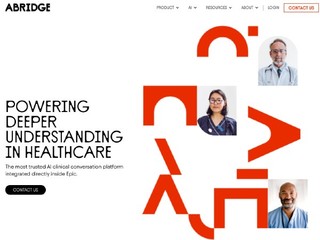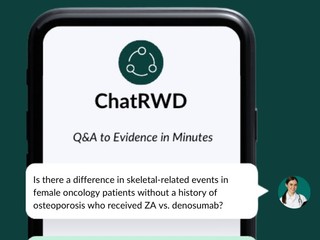
Using generative AI to reduce patient wait times, Assort Health raises $3.5M
The company can automate tasks such as scheduling, confirmations, and triaging
 There's very little that's worse than being sick and needing to talk to your doctor, only to be put on hold for an undetermined amount of time. Like many things in the healthcare space, the COVID-19 pandemic made this even worse as it led to a significant shortage of call center operators, resulting in patients waiting on hold for more than 20 minutes and struggling to receive care.
There's very little that's worse than being sick and needing to talk to your doctor, only to be put on hold for an undetermined amount of time. Like many things in the healthcare space, the COVID-19 pandemic made this even worse as it led to a significant shortage of call center operators, resulting in patients waiting on hold for more than 20 minutes and struggling to receive care.
Assort Health is a company looking to solve that problem through the use of generative AI, automating tasks that can help patients more quickly get the help they need.
"We handle important tasks like new patient appointment scheduling, established patient workflows like rescheduling and cancelling appointments, and also automatically triage to the right extension or number for cases that our AI cannot handle, such as clinical questions to provider’s medical assistant or billing questions to the RCM department," Jeff Liu, co-founder and CTO at Assort Health, explained.
"Our product ensures a smooth and efficient experience where the patient will get matched with a provider that can best treat the condition they are coming in for."
Now the company has raised $3.5 million in funding in a round led by Matt Humphrey, Partner at Quiet Capital, along woth Four Acres, Tau Ventures, and a number of angel investors, including PathAI founder and CTO Aditya Khosla, as well as senior executives and founders from Flatiron Health, Presto AI, and Athena Health, among others.
With Assort, when a patient calls in, instead of waiting on hold or navigating a frustrating phone tree/IVR system, the company's conversational Voice AI will immediately pick up and ask the patient what they need.
Common tasks include determining which doctor to send the call to; new patient registration and appointment scheduling; simple tasks such as established patient rescheduling, cancellations, and confirmations; triaging and routing calls to the appropriate department; and answering frequently asked questions, such as address, visiting hours, and parking.
The platform is powered by the same underlying framework that drives ChatGPT's voice-to-voice functionalities, including advanced LLMs, TTS (text to speech) and STT (speech to text) models that have just become available in the past few months.
Assort, which integrates with Epic and other EHRs as well as the practice’s existing VOIP system for end-to-end automation, is used by patients, practice administrators and physicians.
So far, tens of thousands of patients have successfully interacted with its conversational AI instead of waiting on hold to schedule, reschedule, and cancel appointments, while admins have access to all metrics and transparency to how Assort's services are performing and helping to streamline their practice operations. Finally, physicians can update their scheduling or triage rules easily to ensure they are always seeing the patient they can best serve.
"Over and over again, we hear how patients are extremely frustrated. It is absurd and even dangerous for any patient with an urgent medical need to wait 20 minutes on hold because the call center is overwhelmed and finally be transferred to a medical assistant who can help," said Jon Wang, the company's co-founder and CEO.
The company has so far partnered with some of the largest healthcare groups in the country, including the Illinois Bone and Joint Institute, Chicago Division, which saw its abandonment rate drop 40 points to 15%, and saw hold times drop by 56% just within 30 days of launching the product.
"To our knowledge this is the first generative AI in healthcare call centers with proven results in a case study with patients. What we're doing will become the norm in five years and we will lead that charge," said Liu.
"Long term, both Jon and I truly believe in our vision to make exception healthcare accessible anytime, anywhere, for everyone."
The new funding will be used to scale the team to meet demand with large healthcare organizations.
"We have some of the strongest engineers in the industry and have built a product that providers love. We’re currently working on the next generation of our proprietary Voice AI, and are excited to be releasing that in the coming months to further improve the patient care navigation experience," said Liu.
"I’m excited to grow the engineering team this year to match and accelerate the demand of all the new practices we’ll be onboarding."
Generative AI, of course, was one of the hottest spaces of 2023, with startups raising close to $50 billion last year, and more than 70 fundraisings by startups developing large language models for chatbots, applying AI to create visuals, or setting up platforms for generative AI applications. Healthcare was no exception to this, with 87% of investors saying that generative AI solutions have influenced their investment strategies.
Assort Health's vision is for a seamless patient care journey that harnesses the power of AI to provide efficient and empathetic healthcare, even without face-to-face interactions, with the aim of becoming the primary platform for patients, providers, and payers to navigate healthcare.
"We want to lead the charge here and transform how care navigation works in the next decade with AI. Our north star is, 'Making exceptional healthcare accessible anytime, anywhere, for everyone'," said Wang.
(Image source: assorthealth.com)
Related News


Funding to generative AI seed startups doubled in Q2


Kognitos: Generative AI is the new ‘It’ in automation

Generative AI skincare company Haut.AI raises €2 Million

Oracle integrates generative AI tools into its EHR


